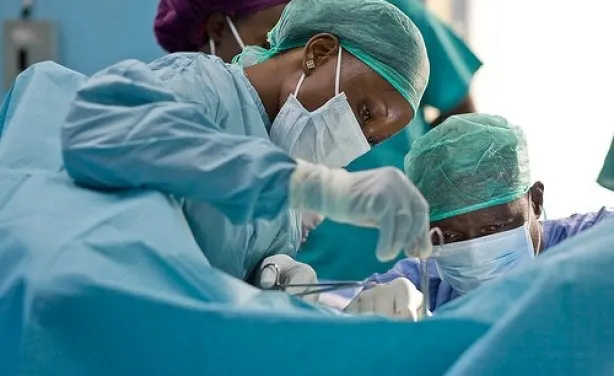The health sector in Nigeria is facing a myriad of problems. The health challenges like Covid-19 and other epidemics made this glaring and obvious. From lack of equipment, overworked and underpaid health officials to migrating doctors and nurses to greener pastures, the future appears gloomy for this sector that plays a vital role in economic development. The situation is so precarious that many Nigerians are afraid to visit the hospital when sick because of issues like misdiagnosis, the antics of frustrated health personnel, the scare of adulterated if not fake medicament and a cocktail of other unwelcome treatment they fear they may receive.
Also contributing to this is the uncertainty of what sort of medical practitioners they would meet in terms of experience and knowledge as so many brilliant doctors have already left the country. Again, even if a brilliant doctor is available, they are probably too overworked and underpaid as well as too stretched to function optimally. As such they have turned to self-medication to help themselves.
The World Health Organisation (WHO) states that 1 in 3 million people stand the risk of dying while traveling by airplane. In comparison, 1 in 300 people stand the risk of dying or being harmed while receiving healthcare. The risk of harm is lower in the aviation industry than the healthcare due to better safety records.
It is to draw the world’s attention to this unwholesome scenario that September 17 of every year is set aside by the international community to mark the World Patient Safety Day with emphasis on medication. The theme of this year’s event, ’Medication Safety’ and the slogan ‘Medication Without Harm’ are instructive.
The day is marked to create enlightenment on the subject, increase public awareness and engagement, enhance global understanding, and work towards global solidarity and action by member states to improve patient safety and lessen patient harm.
According to the Director General of WHO, Tedros Ghebreyesus, medication errors account for half of all avoidable harm in medical care. WHO further noted that globally, “one in 20 patients suffer avoidable medication harm and unsafe medication practices.”
Looking at Africa, the regional director of WHO for Africa, Matshidiso Moeti, stated that unsafe medication practices is high in the African region. Sadly, in our view, data for the African continent is limited even as it is generally accepted that there is a high magnitude of unsafe medication practices. Moeti pointed out that “among low and middle income countries, the African Region has the highest prevalence of substandard and counterfeit medicines (18.7 per cent).”
It’s been said that $42 billion of all health expenditure globally could be made more efficient if medication errors were looked into and ‘targeted at lessening severe avoidable medication-related harm by 50 per cent worldwide in the following five years. This, it is hoped, would be achieved through focused activities and interventions targeting three areas: patients and the public; health care professionals; and medicines, systems and medication practices. The health body is working with member states to implement the WHO Global Patient Safety Action Plan 2021–2030.
Available record indicates that mistakes in medication happen when there are weak medication systems. Also, human factor is vital and ranges from fatigue, poor environmental conditions or staff shortages among others. All of these are harmful to the care of patients.
In Nigeria, there is no known record listing deaths that have occurred as a result of medication error, as it is difficult to ascertain the accurate figures. Most Nigerians self-medicate and make use of traditional or western medication.
The panafrican-med-journal disclosed that the commonness of self-medication as related to Nigerian studies ranges between 60-90 per cent. Also, the sale of prescription drugs as over the counter (OTC) drugs and the operation of several unregistered patent medicine stores/pharmacies that lack proper check has been challenging.
Similarly, a large number of people patronise pharmacies for prescription and over the counter medication without a doctor’s prescription. There’s also the issue of those who patronise hawkers peddling cure-all medicines and herbal drinks.
It is the opinion of this newspaper that the country’s health sector should be improved by the government at all levels so as to restore the respect and confidence Nigerians had in hospitals. Medical tourism may also be reduced if the hospitals are upgraded and updated. The health workers need to be well paid to discourage migration, hospitals need to be well equipped with up to date and adequate equipment to inspire doctors and not frustrate them.
For a long time, the health sector in Nigeria has been in shambles. Now is the time for the government at all levels to wake up to its duties concerning this vital sector.











